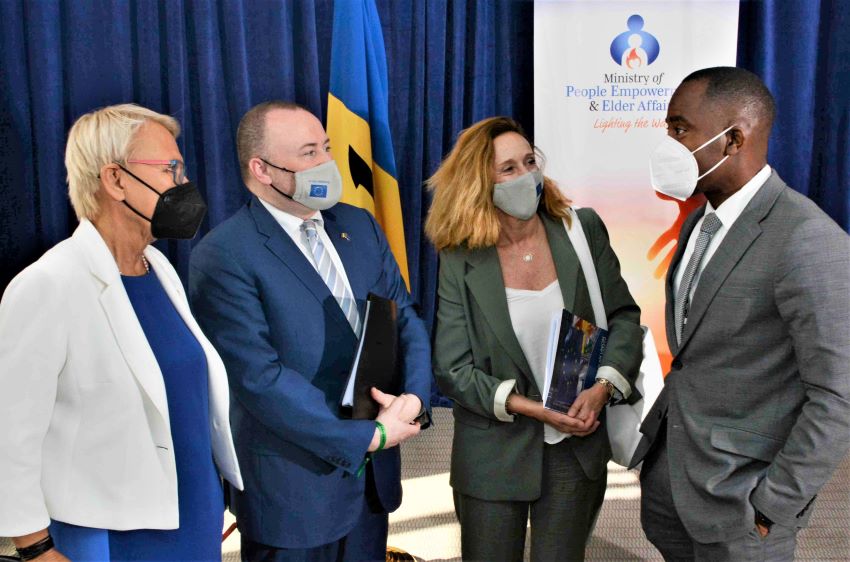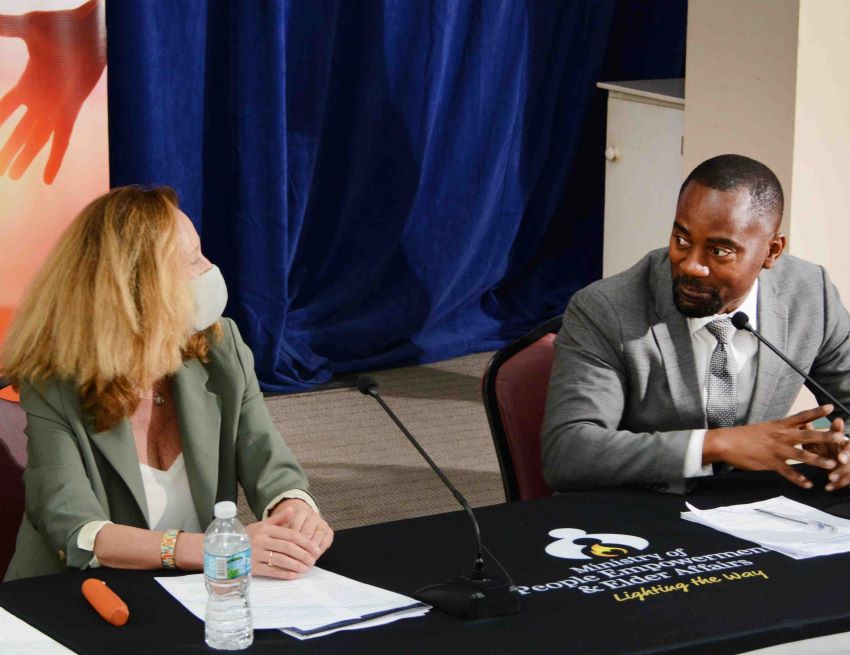
Barbados has received BDS$5.8 million of the first tranche of financial support for a number of programmes totalling BDS$8.8 million from the European Union (EU).
This is in support of government policy to strengthen social protection agencies, and widen the reach to assist the most vulnerable and marginalised in society.
In addition, Barbados and other Caribbean countries will be able to tap into an additional 200 million euros to assist with programmes developed over the next seven years.
These announcements were made during a press briefing with Minister of People Empowerment and Elder Affairs, Kirk Humphrey, and an EU delegation at the Ministry’s Warrens, St. Michael office, on Wednesday.
They were joined by Permanent Secretary in the Ministry, Gabrielle Springer; Deputy Director General, International Partnerships, Myriam Ferran; Director of the Americas, European External Action Service, Brian Glynn; Ambassador EU Delegation to Barbados, Eastern Caribbean States, the OECS, CARICOM and CARIFORUM, Malgorzata Wasilewska, and other officials.
Minister Humphrey thanked the EU for its support, noting that the “significant” funds would allow his Ministry to do more on behalf of the vulnerable and marginalised persons in society.
He stated that COVID-19 and recent events, such as Hurricane Elsa, the ash fall and a “freak storm”, saw his Ministry having to respond to increased calls for assistance, resulting in costs to Government moving from about $900,000 annually, to $900,000 per month.
“You could understand that the Government found itself under some pressure. And that therefore reinforces the point that there is a need for social protection,” the Minister indicated.
He added that issues relating to climate change were also “intimately and intrinsically” linked, and the persons affected were the most vulnerable – the poor, the elderly and the disabled.
Mr. Humphrey contended that a country’s ability to build the resilience of its people would reduce the pressure placed on the system, and noted that was why having a social protection policy was important.
He said the Barbados Social Protection Strategy and Implementation Plan was designed locally to meet the country’s specific needs, and the EU’s assistance would make it possible for Government to execute that plan.

“The importance of the support is that it allows us to do the things that we had imagined … for the country and the people who exist in this country…,” he stressed.
Among those areas identified was the pending amalgamation of the island’s social services to reduce duplication and enhance service delivery, and to make them more accessible to those who need them most.
Ambassador Wasilewska stated that the disbursement came at a crucial time to address the vulnerabilities created by the pandemic.
However, she noted that while the EU did not measure a project’s success by its expenditure, but by the results, it had confidence in Government’s ability to deliver the programme.
She added that the EU adopted a new strategy, in terms of its vision for connectivity in the world for the period 2021 to 2027, and the strategies for Global Gateways, to tackle global challenges.
Meanwhile, Mr. Glynn noted that while Barbados’ graduated status placed it at a disadvantage in accessing traditional funding, the country could benefit from an array of funding streams through the EU.
“There is an envelope of 200 million euro over the next seven years, just for the Caribbean, and I have no doubt that Barbados will participate in many of those programmes,” he said.
